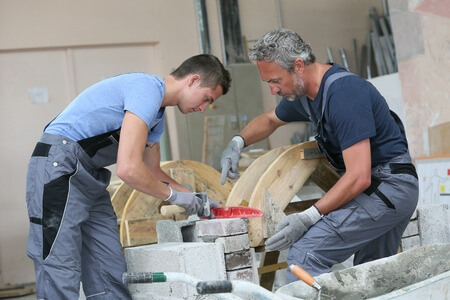Studying well in school is important. Those 12 years – and university – are important. But along the way, a young person needs to learn many non-academic skills and strengths that are vital for relationships and a career. While some of this can be acquired from school programs, by and large they aren’t the main focus of a formal education.
Critical thinking. How to associate and differentiate concepts, evaluate quality, troubleshoot, analyze options, make sound judgements and decisions, set goals, make plans, organize for action, learn from experience, control emotions and impulses, empathize, and many other thinking skills. Some of these skills can be learned in school, provided the teacher’s approach is not just to convey information, but to get students to think.
Wisdom. The thousands of insights about truth and the real world that can guide action. Most adults acquire this kind of understanding through years of hard experience. All of them wish they had learned these things earlier in life and not through the pain of mistakes and failures.
Grit (character strengths). Behavior patterns that help us do the hard things in the face of life’s challenges, such as perseverance, patience, initiative, self-confidence, self-discipline, effort, compassion, trust, optimism, rationality, creativity, cooperation, and many others. We acquire these patterns by repeatedly using them when faced with adversity. Working a job or participating in team sports or extracurricular projects can help ingrain these strengths.
Communication and social skills. How to listen for understanding, give constructive feedback, receive feedback, stimulate others to think, engage in dialogue, negotiate and resolve conflicts creatively, and many other skills.
Life skills. Courtesy, relationship-building, hygiene, nutrition, fitness, home or vehicle maintenance, construction, machine operation, cooking, gardening, safety, parenting, researching, and many others.
You can easily see how the above will serve a young person well once they’re on their own. The purpose of growing up is to “leave the nest” prepared to deal with the challenges of adult life. The only way to prepare is to repeatedly apply the skills and strengths adult life will require until they become second nature. Some of this might be learned incidental to the school subject matter. But many kids grow up to be adults who have few of these skills and behavior patterns, especially those who were over-protected or over-parented. Ironically, it’s often disadvantaged kids, who had to struggle while growing up, who end up with greater capacity and resilience.
The primary adults in a child’s life are the parents. I once knew a woman whose mother was a gourmet cook but was taught nothing about cooking; when she got married she didn’t even know how to fry an egg.
A parent who understands the many things a child needs to learn beyond the classroom can create opportunities to teach them. A classic approach is to encourage relationships with other adults who can help: relatives, neighbors, ministers and church members, school sponsors of extracurricular activities, and other caring adults in “the village.”
Parents and kids sometimes complain that today’s youth already have a full plate. Truthfully, the time is there; but it’s being wasted with social media, video games, and other aspects of teen culture that do nothing to prepare a kid for life. Too many young adults find themselves out in the world, trying to learn things some of their peers already know.
 Helping your child develop vital thinking skills is perhaps the best way to prepare them for leaving the nest. My new book: How Your Teen Can Grow a Smarter Brain.
Helping your child develop vital thinking skills is perhaps the best way to prepare them for leaving the nest. My new book: How Your Teen Can Grow a Smarter Brain.
You can grow the bond with your child through better listening. Download the FREE ebook, Listening to Understand.

